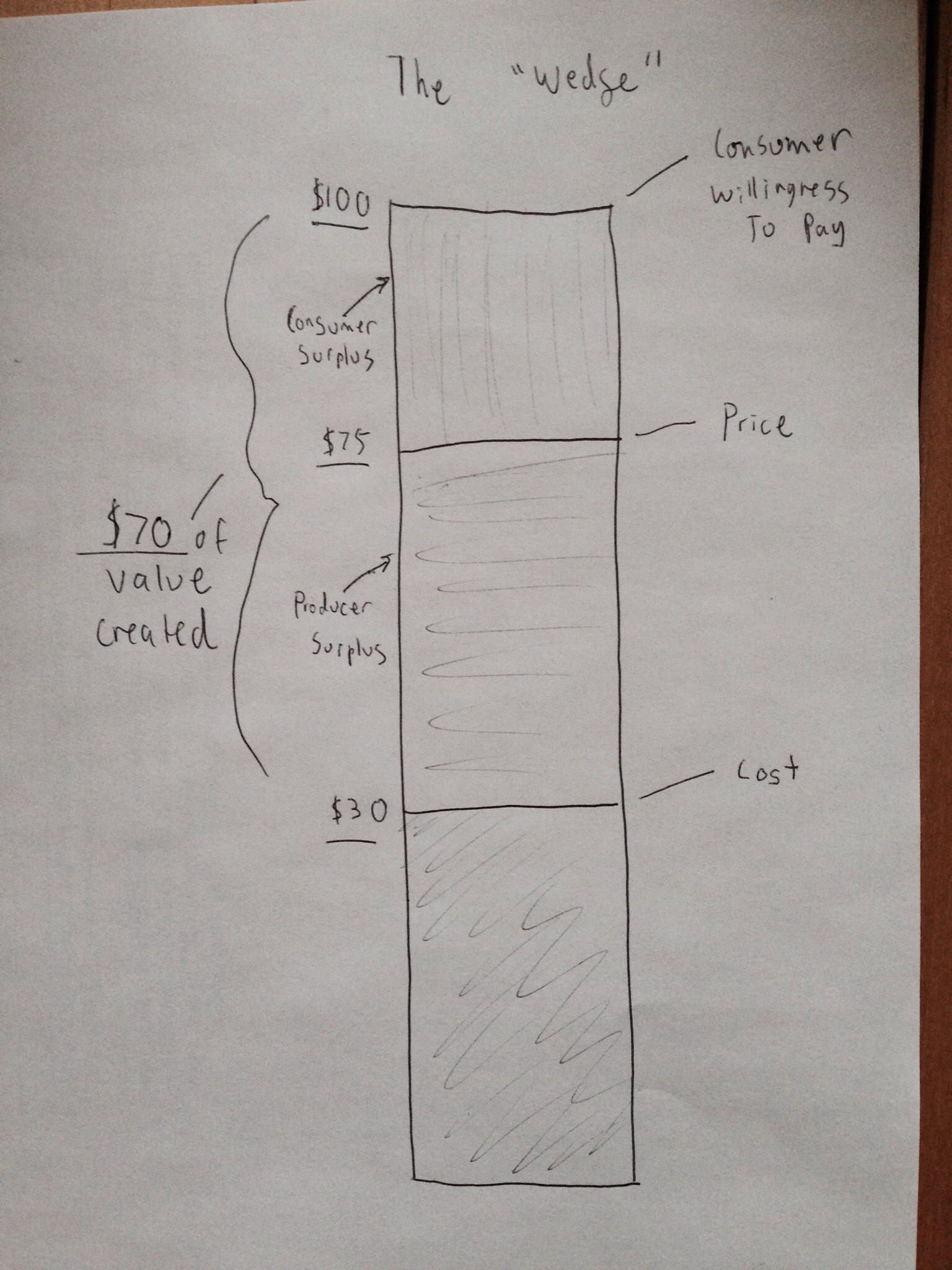Measuring Social Value, Part I – Understanding The Complexities of Non-Economic Value
You Can’t Manage What You Can’t Assess (And Measure) A few months ago I introduced the notion that Business Must Do Good. Urban Innovation Exchange even picked up the post. In that post I proposed that there are four kinds of value that can be created: economic, social, civic, and spiritual.
These types of value creation are inevitable in the organizational world. As businesses, governments, NGOs, religious organizations, and others consume resources to operate, they will inevitable create and destroy value. Some of that value will be in each of the four realms I have described: economic, social, civic, and spiritual.
We can’t manage value creation in each of these realms unless we assess them. Without some form of assessment, categorization, and measurement we will not be able to proactively take steps to create or destroy value in each of these realms. As a result, even though me may want to create social, civic, or spiritual value, we won’t be able to intentionally.
In short – you can’t manage what you can’t assess (and measure). And by that I don’t mean that we have to measure social, civic, or spiritual value and convert it into a dollar value. In fact, I think that’s a foolish exercise that can’t be done. This idea is so important (and so misunderstood), I’ll focus on the relationship between economic and social value in a subsequent post.
Since we want to manage (and foster) the creation of social, civic, and spiritual value, it’s absolutely essential for us to assess and understand it. This is to say that we need to measure value.
Many have failed in attempting to assess non-economic value. Now, I’d like to present a new approach.
Better Approaching the Assessment of Non-Economic Value
We have some really good tools for understanding economic value. If you take an introductory strategy class in business school, you’ll quickly learn about the wedge as a framework for understanding value.
In short, economic value is the difference between how much a consumer is willing to pay for something minus its cost. Here’s a visual explanation, it’s called the “wedge”:
Everything in business tries to affect these parts of the wedge to create more value. Because creating (and capturing) value is the goal, there are all sorts of things to measuring each aspect of this diagram, people study this stuff like crazy – whether it’s how to optimizing pricing to figuring out how to accurately define how much a customer is willing to pay, and more, not to mention oodles of ways to measure costs.
The point is this: because managers measure willingness to pay, price, and cost – and study it like crazy – they are able to analyze what’s preventing them from creating value and change something to create more value. The tools of business require measurement to improve performance. Business tools, it turns out, are derived from this “wedge” because it’s a simple framework for defining economic value.
The Wedge Doesn’t Work For Non-Economic Value
The wedge, unfortunately, doesn’t translate well to non-economic value. Happiness (the aim of social value) doesn’t have traditional "costs" and it’s really hard to measure happiness in terms of dollars, nor does it have “prices” in the same way as economic value.
I propose that this is why we're swimming around aimlessly when it comes to measuring non-economic value: we don’t have a simple way of understanding what social value is. We need a novel representation of social value – like the wedge – except for social, civic, and spiritual value. Once we have those, we can build more sophisticated tools to understand and measure non-economic forms of value.
For the past few months, I’ve been questioning, tinkering, and exploring how to develop a framework for non-economic forms of value. I started with social value. Read the next post in this series to discover and provide feedback on what I’m coming up with.
If you enjoyed this post, you'll probably like my new book - Character By Choice: Letters on Goodness, Courage, and Becoming Better on Purpose. For more details, visit https://www.neiltambe.com/CharacterByChoice.

